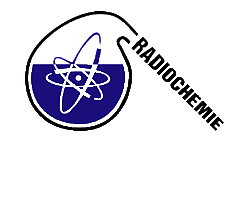Speaker
Dr
Dmitry Marinin
(Institute of Chemistry FEBRAS, Vladivostok, Russia)
Description
The development of nuclear power industry and nuclear technologies resulted in contamination of biosphere, including seawater areas and World Ocean at large, by various radionuclides. Radionuclide accumulation in seabed deposits and migration comprise a great danger for vital functions of different organisms. Strontium radionuclides belong to the group of toxic elements, which causes the necessity as to control their release into the environment as to improve the methods and approaches of their removal from water streams.
The problem of removal of long-lived highly toxic radionuclides can be solved through application of sorption methods, which are primarily used, due to their simplicity and efficiency, to remove dissolved radionuclides down to the level acceptable for decontaminated water disposal into the environment. The efficiency of radionuclide removal depends on the sorbent selectivity in the presence of different components contained in an aqueous medium.
The strontium sorption by barium-containing sorption-reagent materials has been studied and respective sorption mechanisms have been examined. The strontium sorption was also tested for composite barium-containing sorbents based on carbon fibers used as a matrix in sorbent synthesis. The effect of composite synthesis conditions on their sorption properties was demonstrated.
The comparison of strontium radionuclide sorption from seawater by different types of sorbents was performed. The advantages of the sorption-reagent materials obtained in the present work for strontium radionuclide removal from seawater, as compared to other tested sorbents, have been demonstrated.
Primary authors
Prof.
Valentin Avramenko
(Institute of Chemistry FEBRAS, Vladivostok, Russia; Far East Federal University, Vladivostok, Russia)
Prof.
Valentin Sergienko
(Institute of Chemistry FEBRAS, Vladivostok, Russia; Far East Federal University, Vladivostok, Russia)
Co-authors
Dr
Dmitry Marinin
(Institute of Chemistry FEBRAS, Vladivostok, Russia)
Mrs
Elena Kaplun
(Institute of Chemistry FEBRAS, Vladivostok, Russia)
Dr
Tatiana Sokolnitskaya
(Institute of Chemistry FEBRAS, Vladivostok, Russia)
Dr
Veniamin Zheleznov
(Institute of Chemistry FEBRAS, Vladivostok, Russia)

